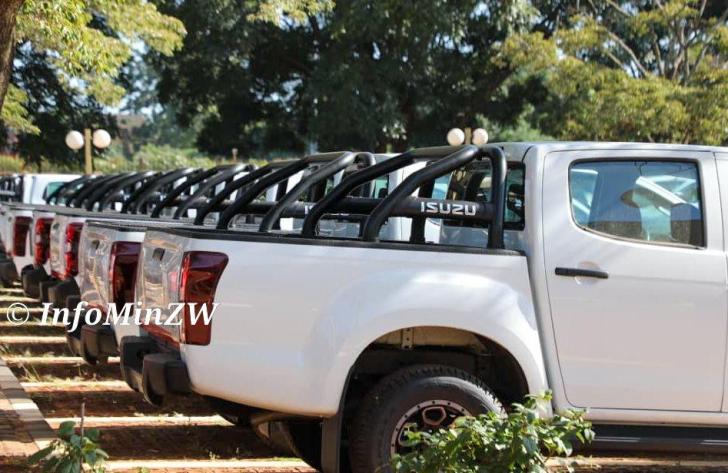News / National
Mnangagwa's govt blows unbudgeted US$16m
13 Sep 2024 at 07:12hrs |
0 Views

The government incurred significant unbudgeted expenditures earlier this year by providing twin-cab vehicles to chiefs, a move that has placed their parent ministry in a financial deficit, Finance Minister Mthuli Ncube has confirmed.
Ncube addressed this issue in Parliament on Wednesday in response to Budget, Finance, and Economic Development Portfolio Committee Chairperson Clemence Chiduwa's queries about unauthorized spending by various ministries.
Chiduwa requested a detailed explanation from Ncube regarding these expenditures.
Ncube defended the unexpected costs, asserting that the vehicles were necessary tools for chiefs to fulfill their duties and engage with their communities effectively.
"Council of Chiefs exceeded its budget due, in part, to the unplanned purchase of 237 vehicles for chiefs, alongside adjustments in allowances and other national events," Ncube said.
"The bulk of this expenditure was for the vehicles, which are essential for their work."
Each new 4x4 Isuzu twin-cab vehicle costs approximately US$70,000 locally, totaling over US$17 million for all the vehicles provided.
The distribution of high-end all-terrain vehicles to chiefs has sparked controversy, with critics suggesting that the move was a reward for their support of Zanu-PF during the last election cycle and a tactic to secure their backing for extending President Emmerson Mnangagwa's tenure until 2030.
Critics argue that chiefs and other traditional leaders play a key role in Zanu-PF's election strategies, including influencing villagers and managing food aid distribution. Ahead of the August 2023 elections, they collaborated with the Zanu-PF affiliate Forever Associates Zimbabwe to promote the party's agenda.
Ncube, however, maintained that the chiefs deserved the vehicles, emphasizing their need for mobility to serve their constituents.
"These vehicles are vital for their work, though the cost exceeded the budget," Ncube stated. "We managed to cover the expense through unallocated reserves in the Treasury."
The incident recalls a similar situation from December 1997 when war veterans pressured then-President Robert Mugabe to grant unbudgeted gratuities and pensions, leading to a drastic 72% devaluation of the Zimbabwe dollar against the US dollar. Economists attribute Zimbabwe's ongoing economic challenges to such fiscal mismanagement.
Ncube addressed this issue in Parliament on Wednesday in response to Budget, Finance, and Economic Development Portfolio Committee Chairperson Clemence Chiduwa's queries about unauthorized spending by various ministries.
Chiduwa requested a detailed explanation from Ncube regarding these expenditures.
Ncube defended the unexpected costs, asserting that the vehicles were necessary tools for chiefs to fulfill their duties and engage with their communities effectively.
"Council of Chiefs exceeded its budget due, in part, to the unplanned purchase of 237 vehicles for chiefs, alongside adjustments in allowances and other national events," Ncube said.
"The bulk of this expenditure was for the vehicles, which are essential for their work."
Each new 4x4 Isuzu twin-cab vehicle costs approximately US$70,000 locally, totaling over US$17 million for all the vehicles provided.
Critics argue that chiefs and other traditional leaders play a key role in Zanu-PF's election strategies, including influencing villagers and managing food aid distribution. Ahead of the August 2023 elections, they collaborated with the Zanu-PF affiliate Forever Associates Zimbabwe to promote the party's agenda.
Ncube, however, maintained that the chiefs deserved the vehicles, emphasizing their need for mobility to serve their constituents.
"These vehicles are vital for their work, though the cost exceeded the budget," Ncube stated. "We managed to cover the expense through unallocated reserves in the Treasury."
The incident recalls a similar situation from December 1997 when war veterans pressured then-President Robert Mugabe to grant unbudgeted gratuities and pensions, leading to a drastic 72% devaluation of the Zimbabwe dollar against the US dollar. Economists attribute Zimbabwe's ongoing economic challenges to such fiscal mismanagement.
Source - newsday
Join the discussion
Loading comments…






























